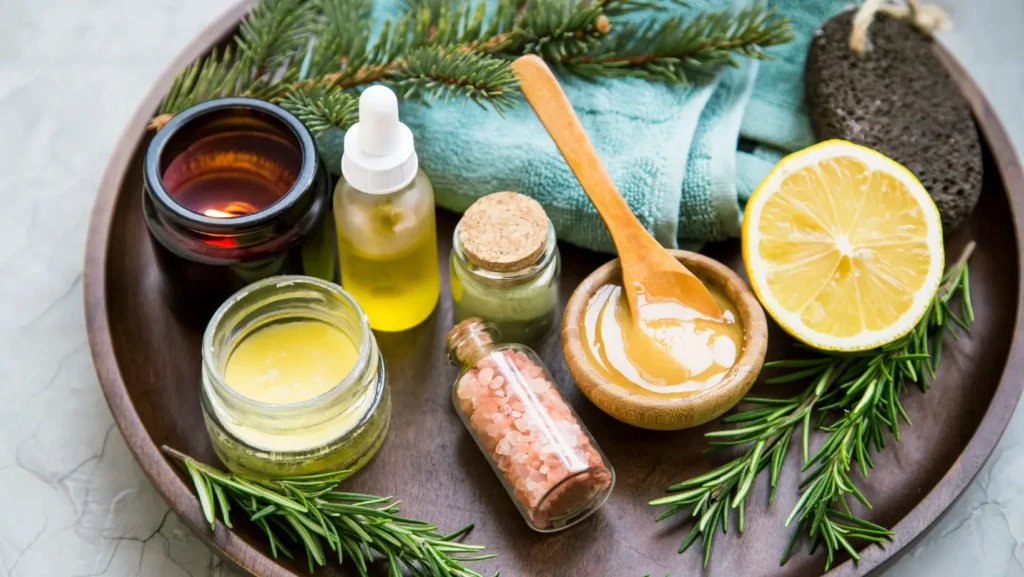Taking care of skin can be costly with synthetic ingredients. Synthetic ingredients, also known as chemical ingredients, can be beneficial for the skin when formulated to address specific concerns, such as aging or acne. However, they can also be harsh and irritating, and some have been linked to health issues. While artificial ingredients may temporarily beautify the skin, they do not sustain its beauty in the long run. In this case, the use of natural ingredients can be very beneficial as they help maintain vibrant and glowing skin, and natural ingredients are often cheaper than synthetic ones.
Here are some natural ingredients that can be used for beauty:
Aloe vera, coconut oil, argan oil, honey, jojoba oil, turmeric powder, and olive oil. You can use any or several of these natural ingredients, as each has its own benefits for various beauty purposes. I will describe each of these ingredients, their benefits, and how to use them.
Aloe Vera
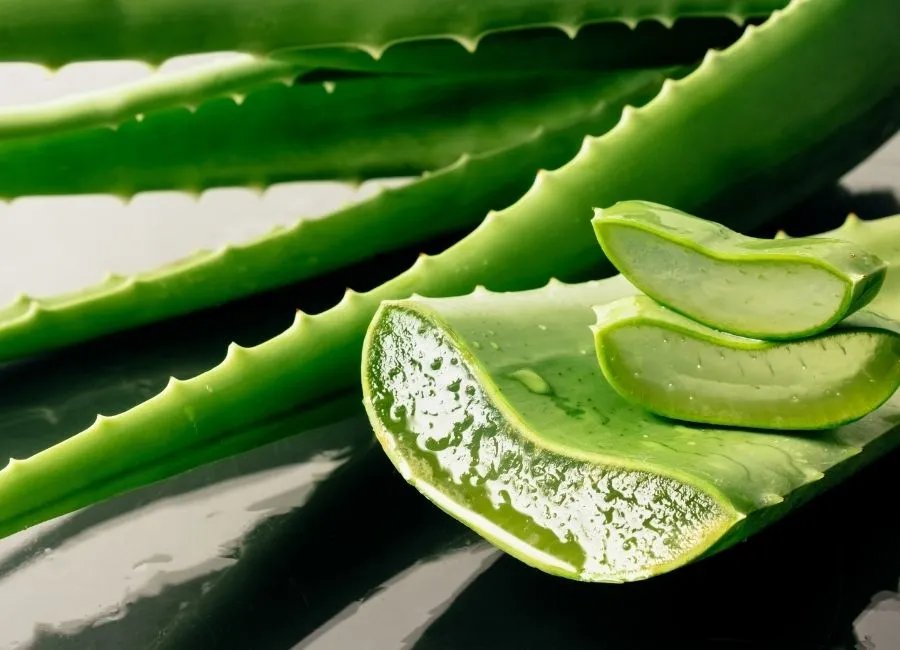
Aloe vera is a useful and effective natural ingredient for achieving skin glow, revitalization, preventing hair loss, and thickening and lengthening hair. Aloe vera possesses a wide range of medicinal properties, making it highly valued in the beauty world. However, many people are unaware of the amazing benefits that aloe vera offers in beauty practices. Today, I will discuss some simple uses of aloe vera in beauty routines. It contains vitamins, minerals, enzymes, and amino acids that nourish the skin.
How Aloe Vera Enhances Natural Beauty?
- Removes acne or pimples.
- Reduces cracked heels.
- Removes sunburn.
- Prevents skin wrinkles.
- Retains skin youth.
- Keeps the skin alive.
- Promotes hair growth.
- Used as a natural ingredient to remove makeup.
Some Uses of Aloe Vera in Beauty Practices:
- Dry skin care cosmetics often contain aloe vera, which revitalizes the skin. You can also do this at home by extracting the inner gel of aloe vera with a knife and applying it to your face. This will leave your skin smooth, bright, and soft.
- Wrinkles develop on our skin with age, but you can easily prevent them using aloe vera, which is rich in antioxidants. This gel penetrates deep into the skin and contains vitamins A, B, C, and E to nourish the skin. It also helps keep the skin moist and removes sunburn spots. Mix 2 tablespoons of aloe vera gel with half a lemon juice, apply this mask to sunburned skin, and rinse off with cold water after 15 minutes.
- To create an aloe vera exfoliating mask, blend 1 teaspoon of fresh aloe vera gel with 1 teaspoon of oatmeal powder and 1/2 teaspoon of olive oil. Apply this mask to your face and neck for 30 minutes, then rinse with cold water. Use once a week.
- Aloe vera’s natural antibacterial properties effectively heal acne and promote new cell growth. Make aloe vera ice cubes in a tray and rub these cubes on your acne two or three times a day to reduce acne problems.
- Aloe vera is beneficial not only for the skin but also for hair. Using aloe vera maintains the scalp’s pH balance and removes dandruff. Mix aloe vera gel and castor oil in a 1:1 ratio, apply it to the scalp overnight, and shampoo in the morning to keep hair dandruff-free.
- Aloe vera can be used to soften and smoothen lips, keeping their color bright. Regularly applying aloe vera gel to the lips will brighten and soften them. Mix one tablespoon of rice powder with aloe vera gel, gently apply this mixture to the lips, and rinse with cold water after 5 minutes to achieve bright, smooth, and soft lips.
- Aloe vera’s antiseptic properties are also significant. Extract aloe vera gel from leaves, store it in the refrigerator, and apply it to small cuts or wounds. Applying it two or three times a day aids in wound healing.
Aloe vera is readily available in the market at a low cost, or you can use aloe vera directly from the plant if you have one. Incorporating this home ingredient into your beauty routine will keep you feeling fresh, beautiful, and energized
Coconut Oil
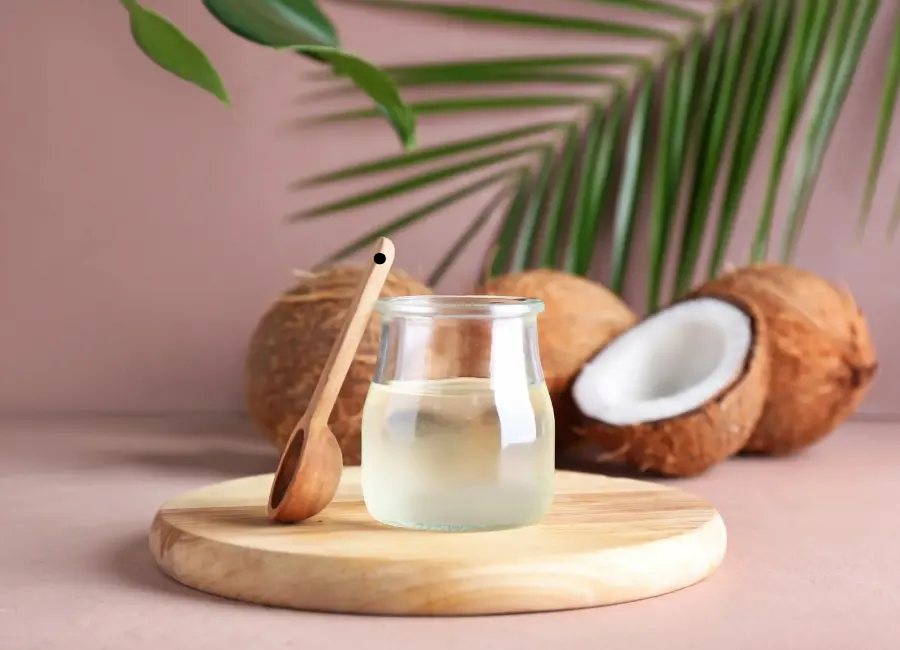
Coconut oil is one of the most effective natural ingredients known to us. It is made by combining various active ingredients collected naturally from coconuts. Apart from its use in cooking, coconut oil also plays a special role in our skin and hair care.
Coconut oil possesses a variety of beneficial properties that cannot be overstated. However, many of us are not fully aware of these beneficial properties. It can be used as a cleanser, moisturizer, makeup remover, eye contour cream, and hair treatment, and it does not contain chemicals.
Here are some of the benefits of coconut oil:
- Hair conditioning: Coconut oil is a natural conditioner that deeply conditions and hydrates hair. Using coconut oil as a hair conditioner strengthens, revitalizes, and freshens hair from within. It adds hydration, making hair appear fresh and shiny. It also helps eliminate dandruff and prevents hair loss and premature graying.
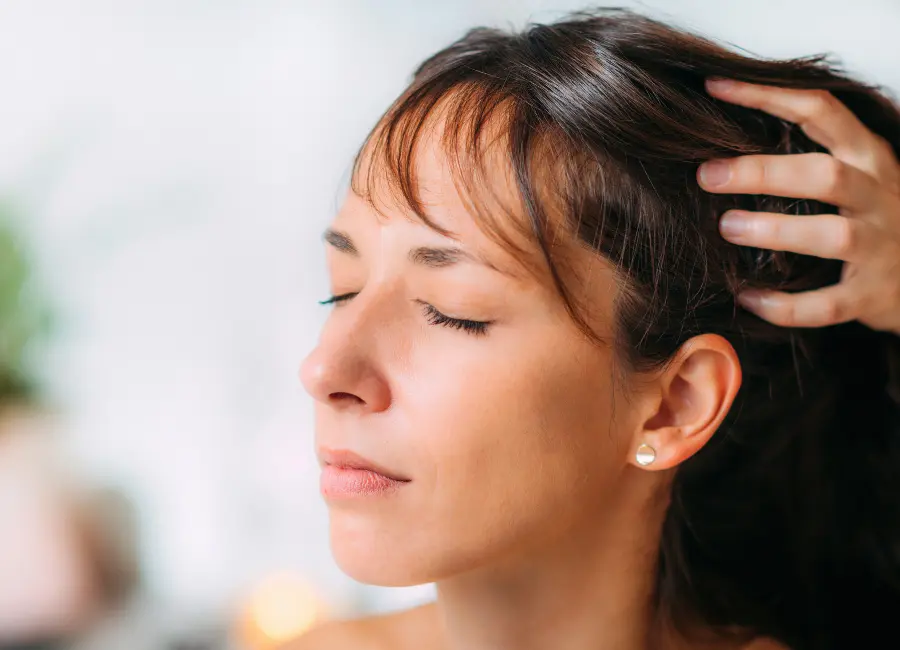
- Moisturization: Coconut oil acts as a natural moisturizer for our skin. It is excellent at preventing skin dryness and flakiness, moisturizing the skin from within, and keeping it vibrant.
- Eye contour cream: Coconut oil can hydrate the eye area and help prevent fine lines.
- Makeup remover: Coconut oil is one of the best natural makeup removers. A small amount can effectively remove or soothe a variety of cosmetics applied to the skin. Coconut oil breaks down harsh chemical cosmetics, removing makeup from deep within and improving skin health.
- Anti-aging: Coconut oil has antioxidant properties that are particularly beneficial in anti-aging skincare. These antioxidants protect our skin from the effects of free radicals, which helps reduce signs of aging. By combating the effects of free radicals, coconut oil prevents signs of aging and promotes bright and vibrant skin.
Coconut oil is a beneficial oil naturally produced from coconuts, playing an effective role in maintaining a healthy life. While coconut oil offers many benefits, it is crucial to use it properly, as it may not be suitable for everyone. Individuals with excessively oily or sensitive skin may experience problems such as skin allergies when using coconut oil. Therefore, before using coconut oil, ensure it is suitable for your skin and health. If it is compatible, you can enjoy its benefits by using coconut oil properly.
Argan Oil
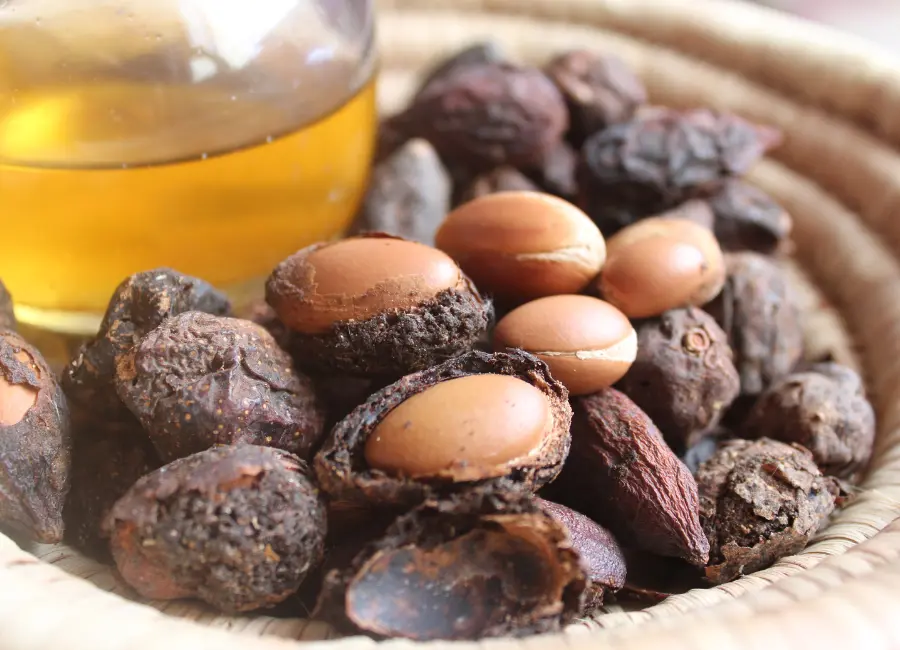
Argan oil is now quite popular in skin and hair care. It can help with dry skin, oily skin, and oily scalps, as well as soften hair and reduce split ends. This ingredient can be found in various products, and it’s also available separately. But do we all know what Argan Oil actually is? What are its benefits and how do you use it? I think many people still don’t know the benefits of argan oil! Let’s find out today how beneficial Argan oil is for skin and hair care and how you can use it.
I. Benefits of Argan Oil in Hair Care:
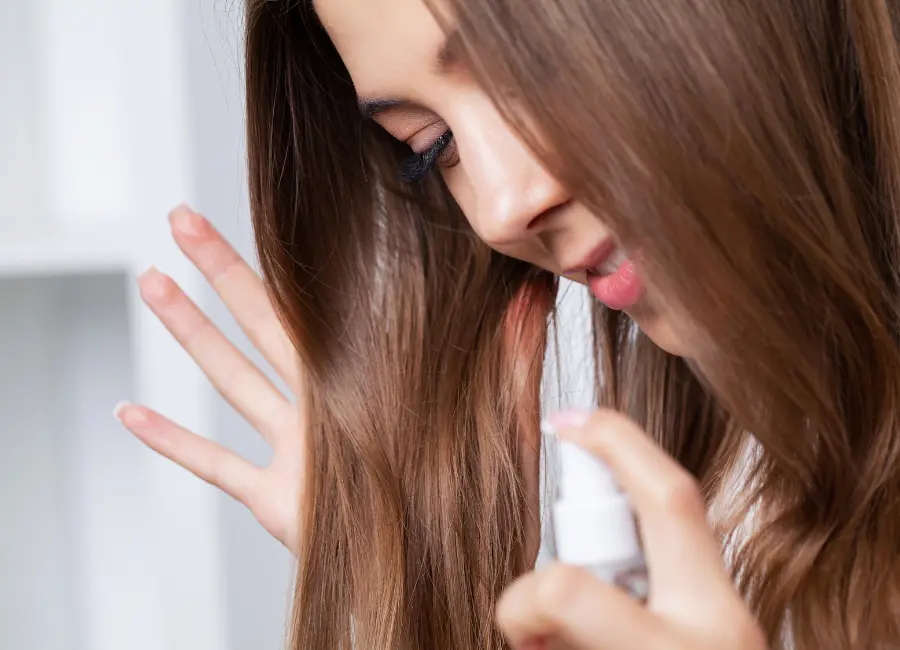
Argan oil is rich in vitamin E, which helps prevent hair and scalp dryness, reduces frizziness, and increases shine. It also reduces hair breakage, split ends, and hair fall, while thickening the hair. It can be mixed with any carrier oil for use.
How to use argan oil in hair care?
- Argan oil hair mask: Making a hair mask might seem like a hassle, but you can easily make your hair soft and shiny with a simple argan oil hair mask. Take a few drops of Skin Cafe Argan Oil and Skin Cafe Coconut Oil in the palm of your hand and massage it from the roots to the tips of your hair for 10 minutes. Then wait 30-40 minutes before shampooing.
- Argan oil shampoo: There are many brands of argan oil shampoo available, but it’s also easy to make your own. Pour shampoo according to the length of your hair into your hand, add a drop or two of argan oil, mix well, and shampoo your hair. Doing this 2-3 days a week will leave your hair feeling very soft and shiny.
- Leave-in conditioner: After shampooing, towel dry your hair and apply 2-3 drops of argan oil throughout your hair to reduce dryness and frizziness.
- As a heat protector for hair: If you don’t have a heat protectant on hand before straightening or curling your hair, argan oil can be used as an alternative. Take two drops of oil in the palm of your hand, rub your palms together, lightly massage the oil into your hair, and then proceed with heat styling.
II. Benefits of Argan Oil in Skin Care:
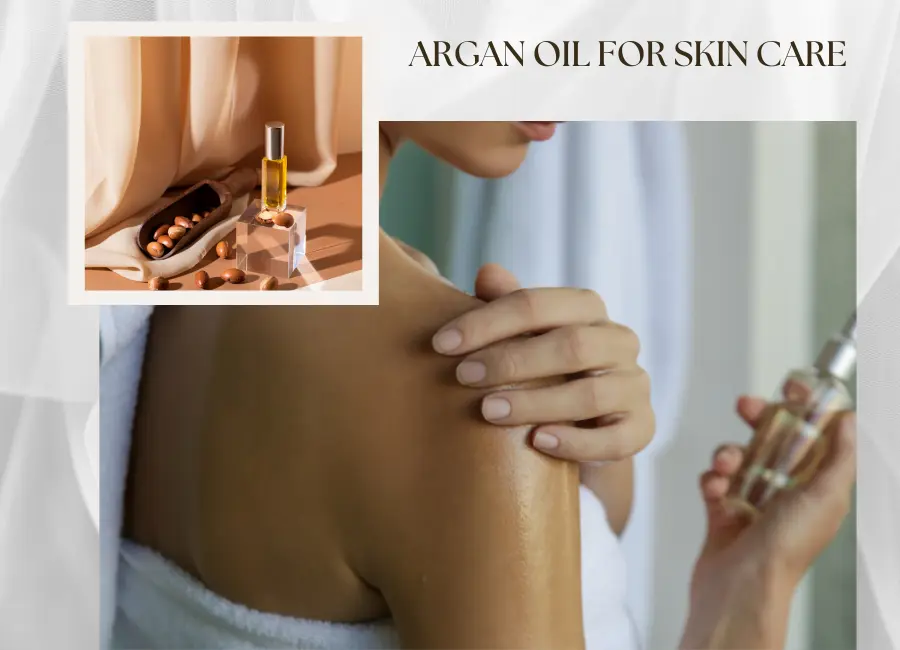
Argan oil locks in skin hydration, reduces age spots and wrinkles, fights free radicals (damage from the sun and pollution), reduces skin irritation, and keeps skin soft. It is non-comedogenic, meaning it will not clog your pores, making it suitable for normal, combination, dry, and even oily skin. Argan oil removes dryness while moisturizing the skin and helps control excess sebum production in oily skin. For those following an anti-aging skincare routine, this oil is a must-have.
How to use argan oil in skin care?
- Moisturizer: Argan oil is commonly used as a moisturizer. Those with normal or dry skin can apply a few drops of argan oil before bedtime for deep nourishment and long-lasting hydration.
- Hydrating toner: Mix a drop of argan oil with your regular toner on a cotton pad and apply it to your face for a glowing and smooth complexion.
- Lip exfoliator: Mix a little argan oil with brown sugar and gently exfoliate your lips for 30 seconds. After washing off the mixture, apply a drop of argan oil to your lips and leave it on for a while. Using this treatment twice a week will keep your lips soft and smooth.
Honey
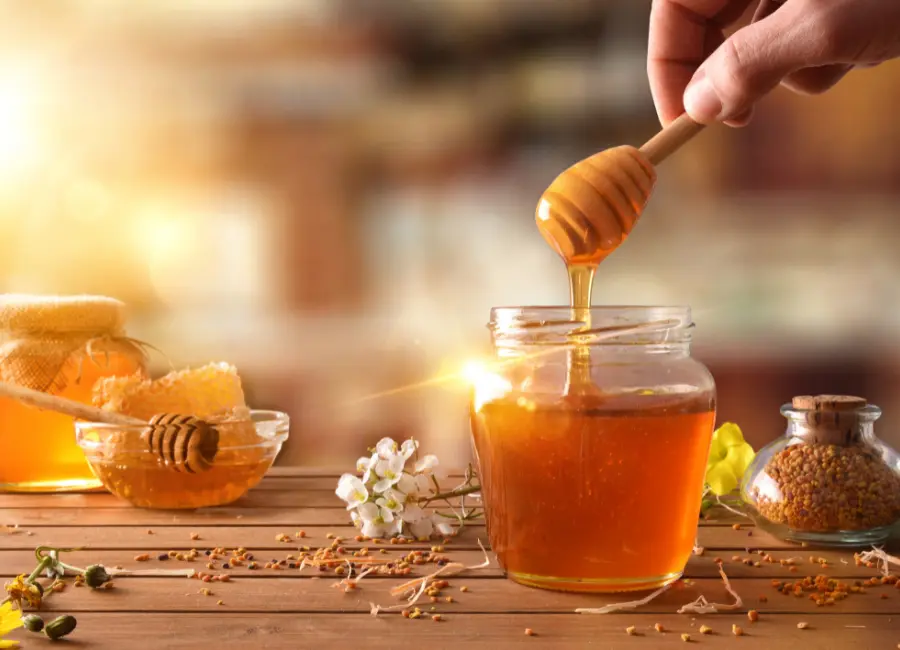
Golden bright honey has been widely used in cosmetics. Honey is an antibiotic for any skin problem. It contains antioxidants and can make skin look radiant and younger. In the present time, honey is used extensively in beauty products, thanks to modern science. It is used in face creams, face washes, shampoos, body lotions, body oils, and other cosmetics.
Uses of Honey for Beauty Practice
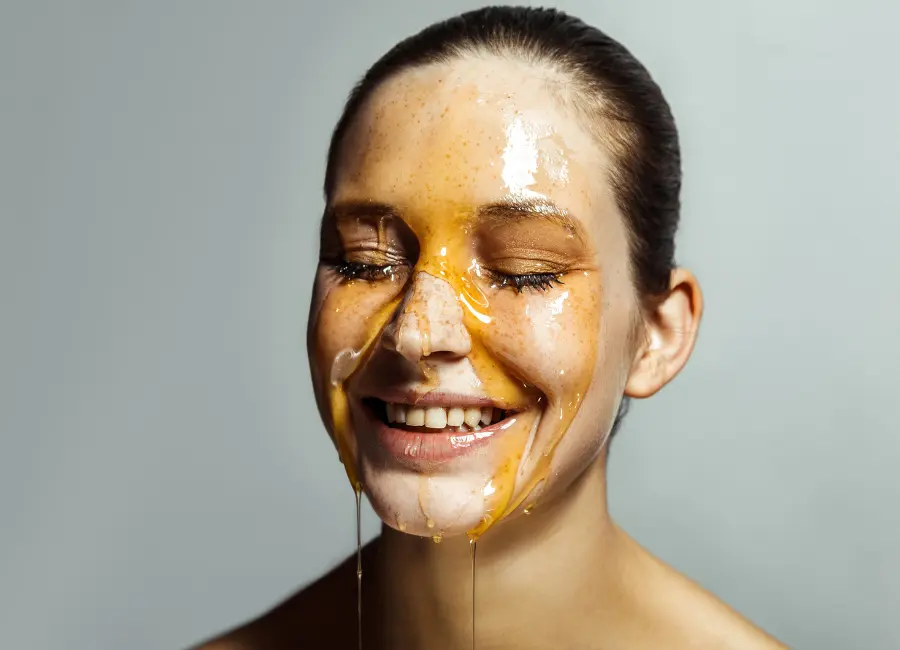
- Deeply Moisturizes the Skin
Enzymes in honey deeply moisturize the skin. Moreover, honey conditions and softens the skin. For dry skin, take 1 teaspoon of raw honey and leave it on for 10 to 15 minutes, then wash your face with warm water. Face masks made of honey are excellent for dry skin.
- Honey as a Pore Cleanser
Our busy lives and polluted environments affect our faces nowadays. As a result, our facial pores get clogged with dirt, and dead cells accumulate every day. Antioxidants in honey clean your pores and help your skin receive oxygen, allowing your skin to breathe easily.
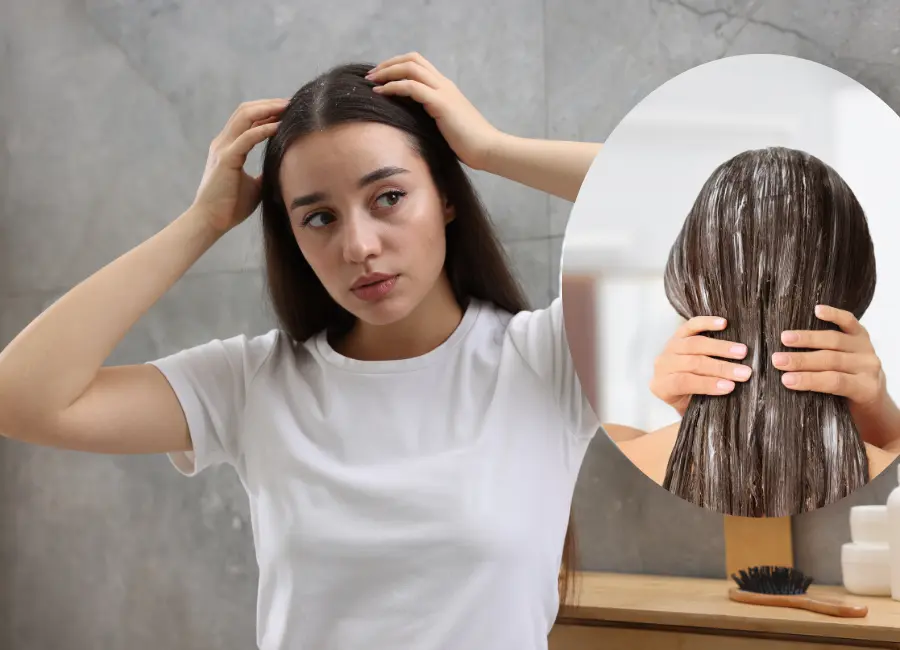
- Honey to Remove Dandruff
Usually, when our scalp is infected, we face problems such as dandruff. As a result, we suffer from unbearable scalp itching and hair fall. Since honey is rich in antioxidants, it can solve the dandruff problem. Take 2 tablespoons of honey and rub it on the scalp. Leave it for 20 minutes, then shampoo your hair. Using honey 2 to 3 times a week will make your hair shiny and smooth.
- Honey Increases the Natural Glow of the Skin
Regular use of a face pack with milk or curd enhances the natural glow. Use it twice a week to get the expected results.
- Helps to Balance the Skin
An unhealthy lifestyle and daily stress are causing premature aging. All the ingredients in honey hydrate your skin and keep the cells hydrated. Moreover, you can use honey on any burnt part of the skin. People have been using honey for thousands of years not only for its color but also for its qualities.
Jojoba Oil
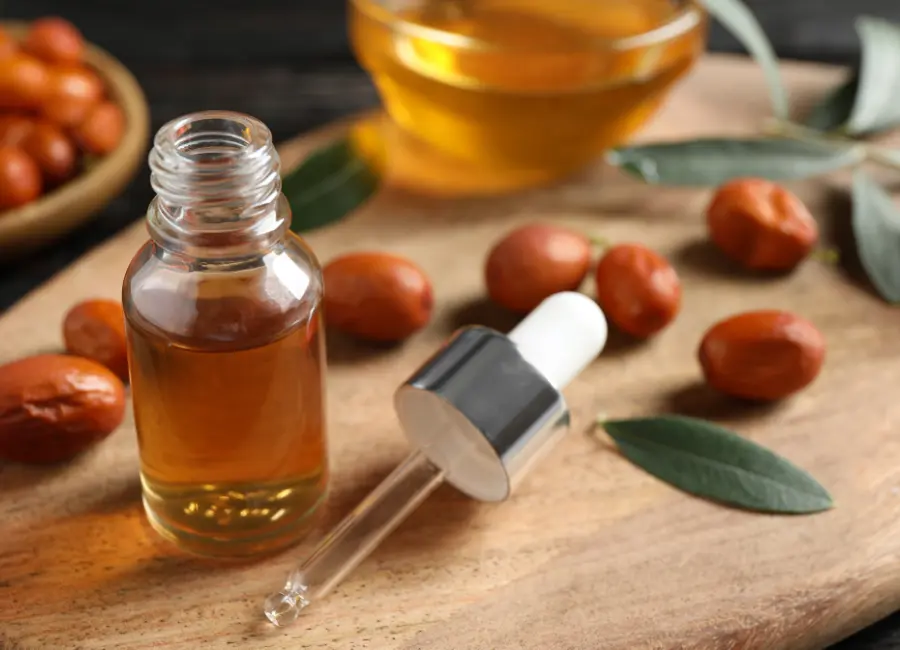
Jojoba oil is a natural ingredient that can moisturize, soften, and nourish all skin types, and it’s especially good for oily or mixed skin. Plus, it is also good for hair.
Jojoba Oil in Beauty Care
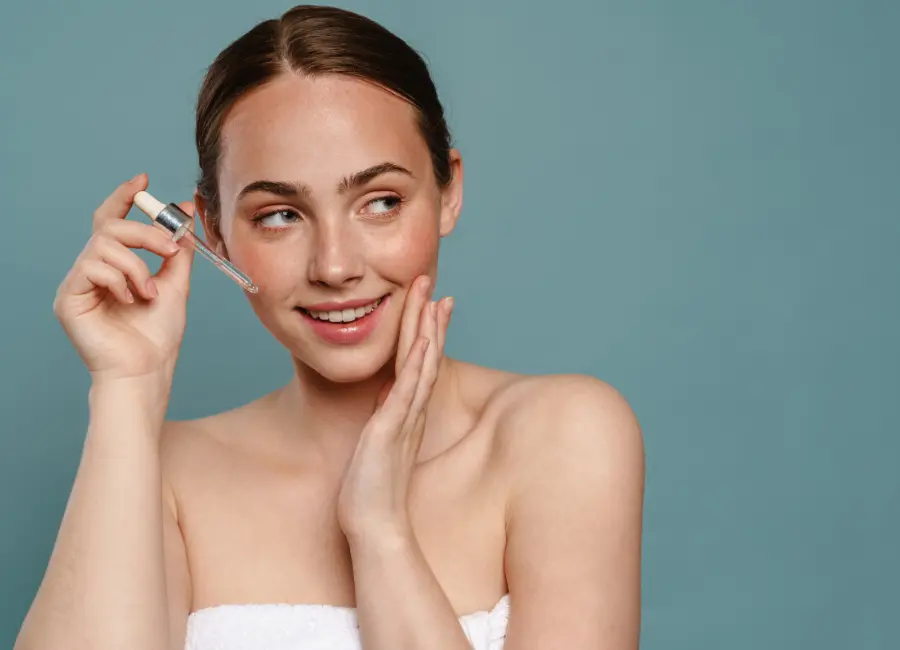
We all know about the use of oil in hair care, but oil in skin care? You heard right! This natural oil works great for all skin types. It is unmatched for taking care of the skin without clogging the pores.
- Rich in Antioxidants Jojoba oil is rich in Vitamin E, which is a good source of natural antioxidants. Due to its antioxidant properties, this natural oil helps in reducing the signs of aging, wrinkles, and pigmentation on the skin if used regularly.
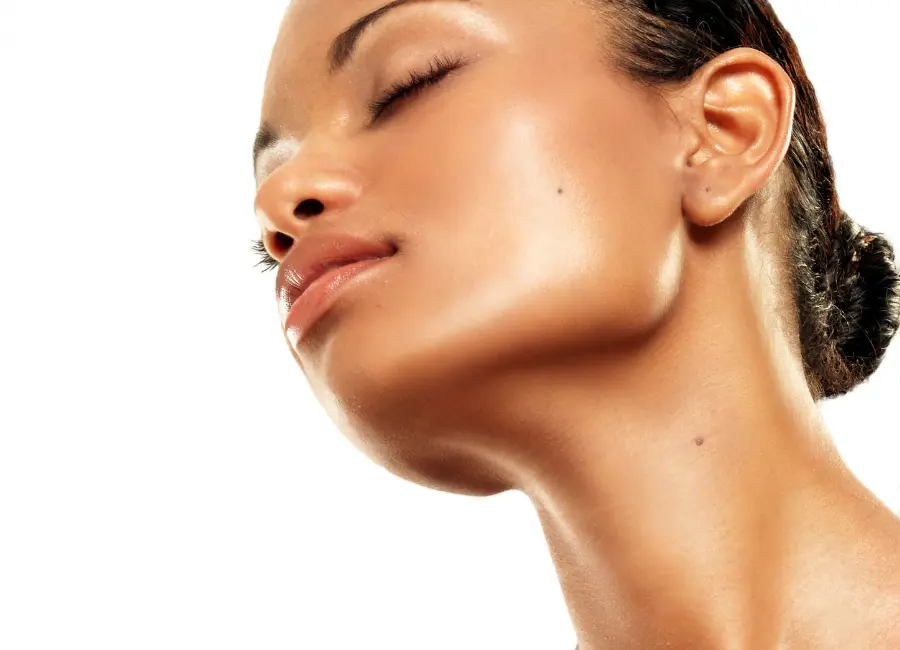
- Also Suitable for Oily Skin People with oily skin are afraid of using oily ingredients, worried that they will clog pores. The good news for them is that jojoba oil, being an herbal ingredient, has some similarities in chemical composition to the sebum produced by the skin. So, there is no chance of breakouts from clogged pores!
- Hypoallergenic Thanks to the chemical composition of jojoba oil, it creates a smooth coating on the skin’s surface. So, the use of this oil does not cause burning or irritation on the skin. Even if you have sensitive skin, this oil is safe for you.
Benefits
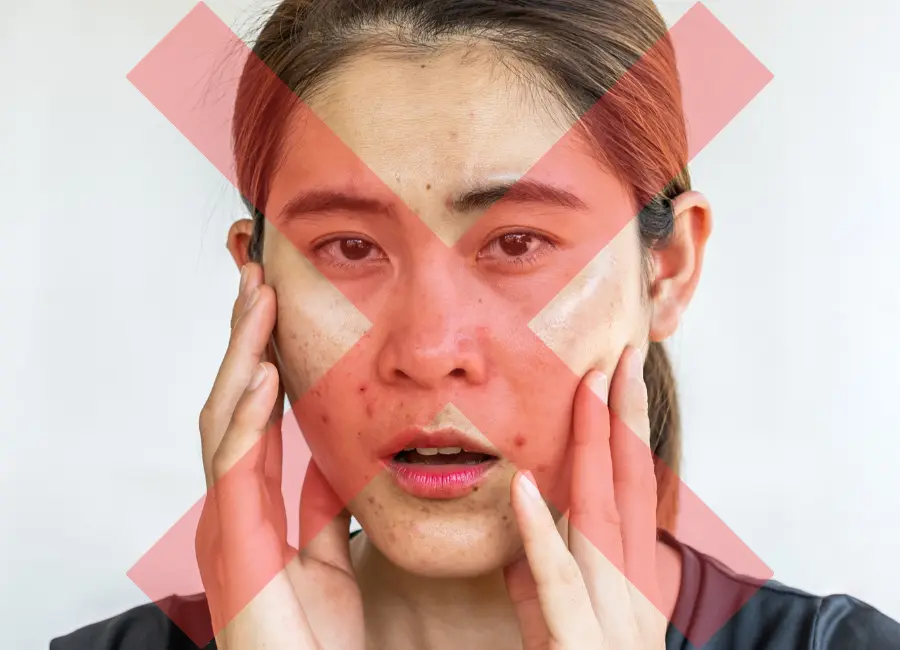
REDUCE OILINESS IN SKIN
- Reduces Excess Oiliness How does oil reduce the oiliness of the face? Sounds a bit strange, doesn’t it? But it’s absolutely true! As mentioned earlier, the composition of jojoba oil is similar to the sebum secreted by the skin. So, when it’s used as a moisturizer, it sends a signal to the sebum-producing glands to keep the skin smooth and hydrated, so that excess sebum is not secreted. Thus, the oil level of the skin is balanced.
- It Heals Wounds Jojoba oil works well to heal scars left behind after acne has cleared. Jojoba oil can be mixed with a few drops of face pack to reduce sunburn and bring back blemish-free skin. Many people shave or wax at home to remove hair. Massaging with this oil after body hair removal will keep the skin soft.
- In the Treatment of Skin Diseases Jojoba oil is used along with various essential oils as an emollient to treat dry skin conditions such as psoriasis and eczema. Many people have rough skin on their hands and feet; this oil is very effective in repairing extremely dehydrated skin. You can use this oil for self-care throughout the year. Since it is made from completely natural ingredients, its effectiveness is also higher!
- Increases Collagen Production Beauty-conscious people know a lot about collagen. It is a protein that keeps the skin youthful, taut, and glowy. Antioxidants in jojoba oil help keep skin healthy by boosting collagen production.
What Kind of Skin Will It Suit?
It is an effective natural oil that suits all skin types, be it oily, dry, sensitive, or combination. It has no side effects! However, all ingredients may not adjust to everyone’s skin. Any product may cause sensitivity to some, so it is best to do a patch test before use.
Warning
There is no contraindication for its use in pregnant women and breastfeeding mothers. As it is prepared from natural ingredients, it can be used safely. However, be careful not to get it into the eyes during use and keep it away from children. As it is self-stable like other oils, you can preserve it at room temperature. But keep it away from direct sunlight or heat.
Turmeric Powder
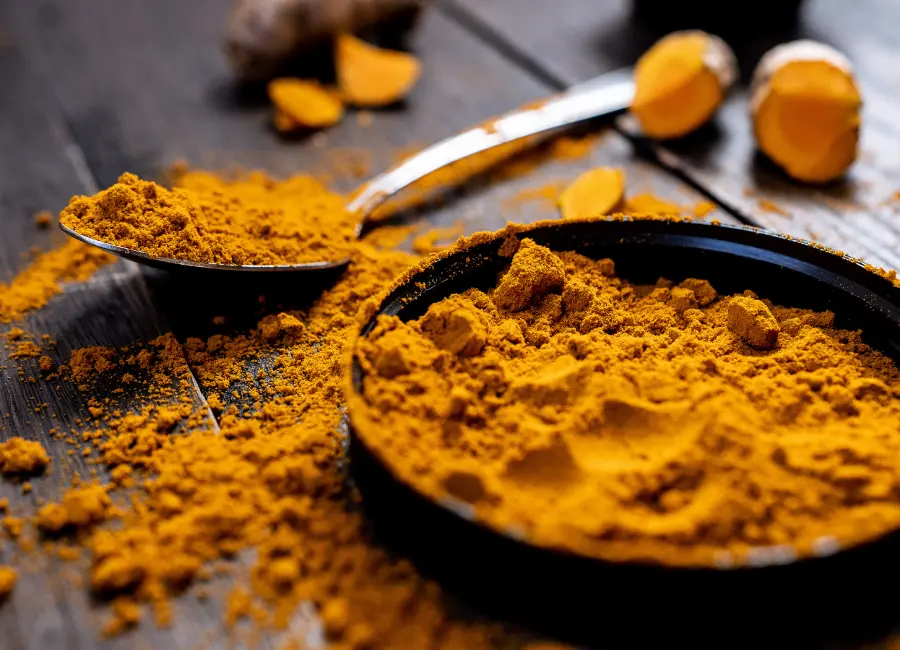
Turmeric contains antioxidants and anti-inflammatory components. These characteristics may provide glow and luster to the skin. Turmeric may also revive your skin by bringing out its natural glow. You may want to try a turmeric face mask at home to see if the spice has any positive effects on your skin. It can be used in face packs to give skin a natural glow and remove unwanted facial hair.
Before using anything on the skin, you must know its rules. Not everyone’s skin type is the same. Skin type should be known first. Therefore, it will be beneficial if you practice according to your skin type, and there will be no side effects as a result of using it. There is no alternative to turmeric for wound healing.
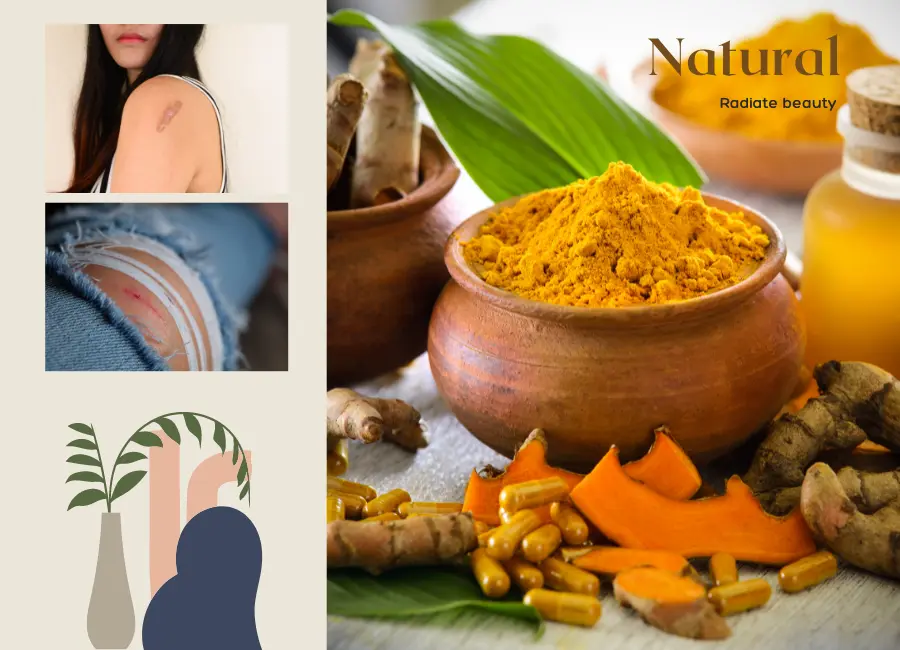
Skin Lesion: Mix 1 teaspoon of honey, and 1 teaspoon of turmeric powder, and make 15 ml. Apply it to the wound and wash it off when it dries up. It will remove the skin lesions.
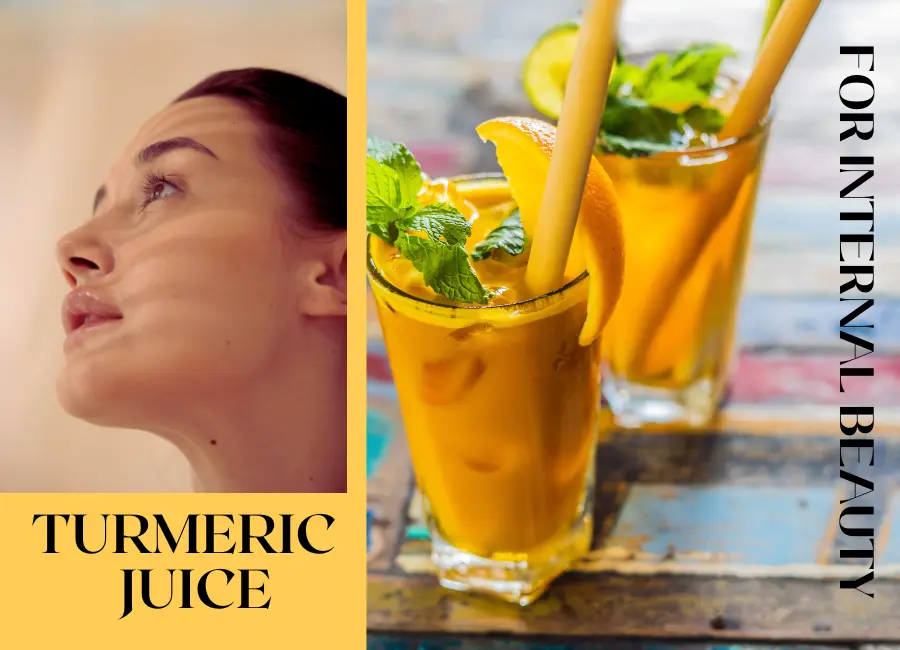
Turmeric for Internal Beauty: Wash the raw turmeric well, cut it thinly, dry it at room temperature, blend it well, and keep it in a glass container in the fridge. Eating half a teaspoon of turmeric powder mixed with cow’s milk every day will increase immunity.
Rules for Using Turmeric on the Skin
Dry Skin: Extract the juice of turmeric and boil it for 5-7 minutes. Keep it in a glass jar after cooling.
Pack: Soak 1 tablespoon of turmeric juice, and 2 wooden nuts. Make a good paste and mix it with half a teaspoon of egg yolk, 1 tablespoon of dal powder, and 20 ml of water. Apply it and wash it off. It will increase brightness, remove wrinkles, and maintain skin tone.
Oily Skin: Soak 1 tablespoon of turmeric juice with 1 tablespoon of Multani soil for a while. Then mix mint leaf paste, 1 teaspoon of basil leaf paste, and 1 pinch of camphor well. Apply the paste to the face for 15 minutes, then wash it off. It will reduce the accumulated oiliness of the skin, and there will be no acne.
Mixed Skin: Mix 1 tablespoon of egg white and 1 tablespoon of egg yolk with turmeric juice. Now mix gram flour with mung dal, leave it on the skin for 20 minutes, and wash it off.
Turmeric that is high in curcumin has more medicinal properties. However, turmeric with high lead content is harmful. So, it is very important to take proper precautions while using turmeric.
Olive Oil
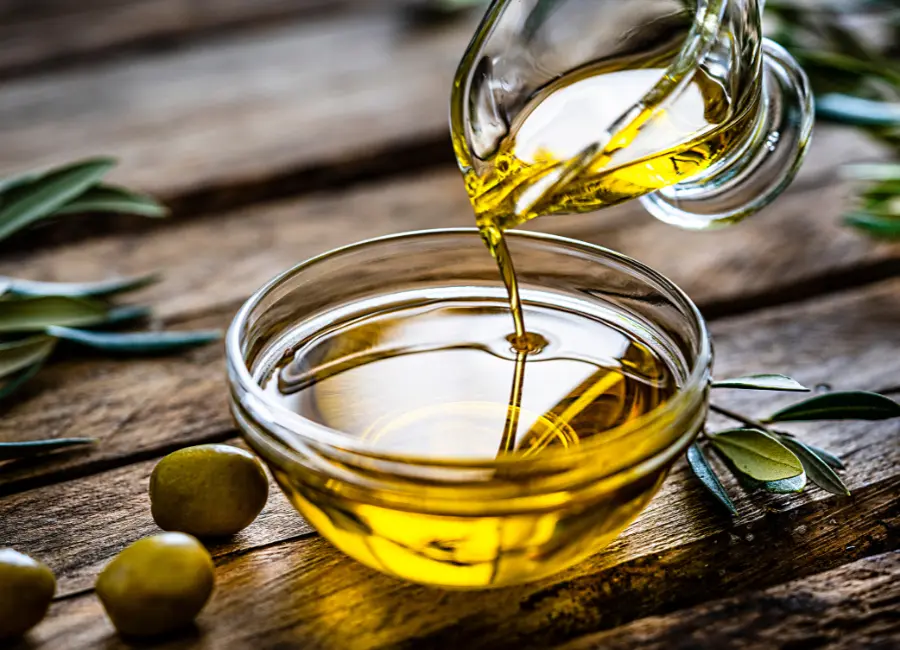
Olive oil is the natural oil extracted from olives, the fruit of the olive tree. It can be used as a moisturizer, added to hair masks, or used as a makeup remover. Olive oil is rich in minerals, vitamins, and fatty acids that work very well to reduce fine lines and wrinkles on the skin. This oil rejuvenates and nourishes the skin. Olive oil helps our skin retain its elasticity and softness. Olive oil is very beneficial for our skin, hair, and nails. There is no match for olive oil in smoothing hair cuticles and preventing split ends to keep hair soft and healthy!
Olive Oil in Skin Care
- Olive oil is very beneficial for the skin. It can play a very effective role in regular skin care.
- Protecting skin moisture: When the amount of water in our skin decreases, the skin starts to become rough.
- Repairing damaged skin tissue.
- Adding liveliness to the face.
- Removing signs of aging.
- Keeping the skin clean.
- Olive oil is very beneficial for hair as it makes hair silky, helps to strengthen hair, and keeps hair thick and dark.
Olive Oil for Hair Care
Who doesn’t want thick, black, long hair? When I think of this thick long hair, I remember a line: “The girl had long hair, her hair was full of flowers!” But even this beautiful thick hair needs a little care. Olive oil works very well in hair care. You can use this oil in different ways for hair care.
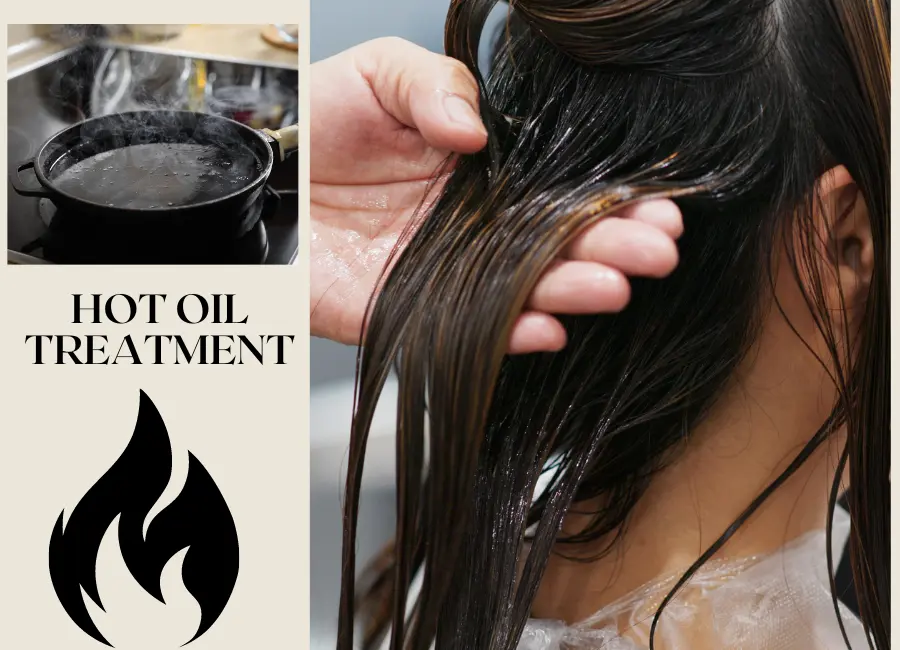
a) In Hot Oil Treatment
Heat a few tablespoons of olive oil and apply it to your hair and scalp. Massage gently for 5 minutes. Leave it for 30 minutes and then wash your hair using a mild shampoo. This hot oil treatment will strengthen the hair roots, making the hair stronger from within. Gradually, the problem of excess hair loss will also decrease.
b) As a Nourishing Hair Mask
You can make a hair mask by mixing a teaspoon of lemon juice, a teaspoon of honey, and an egg yolk with the amount of olive oil according to the length of your hair. Apply this pack to your hair and scalp and leave it for about 30 minutes. Then wash your hair with a mild shampoo. Applying this hair mask once a week will make your hair healthy and shiny.
2. As a Body Moisturizer
Olive oil is a good option as a body moisturizer. It will help your skin retain moisture for a long time. Mix a few drops of olive oil with your favorite body lotion, rub your palms together, and apply it all over your body after showering. Regular use will make your skin smooth and soft. Alternatively, you can add a few drops of olive oil to your bath water. During the shower, your skin’s natural oil level will be maintained, it will not feel dry, and your skin will be soft. It is a simple and effective way to keep the skin healthy.
3. Olive Oil for Nail Care
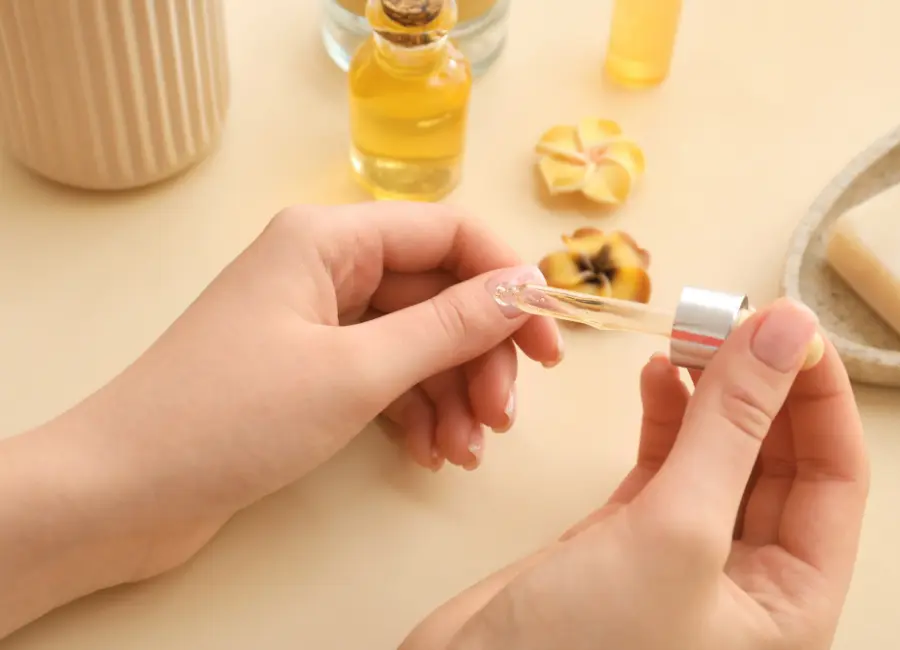
Many people prefer to use natural oils during a manicure. Often, fingernails and toenails become dry or break if they grow a little. Those who want to grow nails quickly can warm olive oil and massage the nails for 2 minutes. It will make the nails healthy and prevent breakage. If you can do this three to four days a week, you will get results very quickly.
